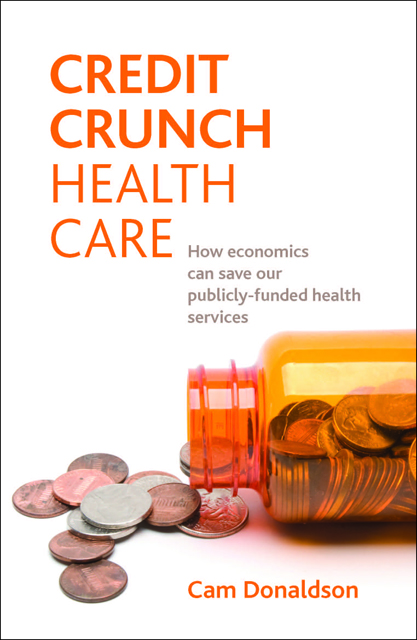Book contents
- Frontmatter
- Dedication
- Contents
- List of figures, tables and boxes
- About the author
- Acknowledgements
- Foreword
- one Introduction: the quid pro quo of health care
- two Market failure and health care
- three Charging the public: exception or anomaly?
- four Reform, privatisation and those damn doctors
- five The fiscal future of health care: an economistâs rant
- six Economic evaluation
- seven Whatâs your health worth?
- eight Conclusion
- Appendix: 'What's your health worth?' A questionnaire
- Index
five - The fiscal future of health care: an economistâs rant
Published online by Cambridge University Press: 15 April 2023
- Frontmatter
- Dedication
- Contents
- List of figures, tables and boxes
- About the author
- Acknowledgements
- Foreword
- one Introduction: the quid pro quo of health care
- two Market failure and health care
- three Charging the public: exception or anomaly?
- four Reform, privatisation and those damn doctors
- five The fiscal future of health care: an economistâs rant
- six Economic evaluation
- seven Whatâs your health worth?
- eight Conclusion
- Appendix: 'What's your health worth?' A questionnaire
- Index
Summary
Introduction
This is the most embarrassing chapter of the book, for two reasons: it involves me ranting in a rather negative manner; and, then, what I propose as a potential way forward is in fact really quite mundane, despite its impeccable logic. My starting point is that, as a consequence of market failure, the allocation of health care funds according to geographically defined populations, and usually adjusted for measures of need, is now the norm in the most advanced economies of the world â the basic notion of which is a fixed funding envelope that can never meet all possible claims made on it. You will recall that scarcity in the health care context refers to not having enough resources to meet all needs; the situation described above is therefore an example of scarcity. The fundamental challenge of managing scarce health care resources for maximum population health still exists, but seems to be consistently denied by the actions of those who govern and administer our health care systems. Hence my rant begins, with the logic as follows. First, let us rule out user charges and related tools for rationing care that place financial and decision burdens on patients. Second, although sensible structures and incentives are needed, all the fiddling about with these aspects over the past 20 years has not really got us very far. Hello! In a cash-limited system, as is the case for health care in most advanced economies, whatever entities are put in place as a result of health care reform, they all have to manage scarcity.
The problem is that governments have not responded well to scarcity. Indeed, it could be argued that the reforms discussed in Chapter Four represent a form of scarcity denial. In response to health care âcrisesâ, it is easier to keep reorganising the system rather than face up to the hard choices that need to be made once scarcity is recognised. The result is that health care systems frequently end up in financial crisis, followed by severe and arbitrary cutbacks to clinical care that go too far in the opposite direction and lead to embarrassing surpluses; âboom and bustâ abounds.
- Type
- Chapter
- Information
- Credit Crunch Health CareHow Economics Can Save Our Publicly Funded Health Services, pp. 45 - 74Publisher: Bristol University PressPrint publication year: 2011

